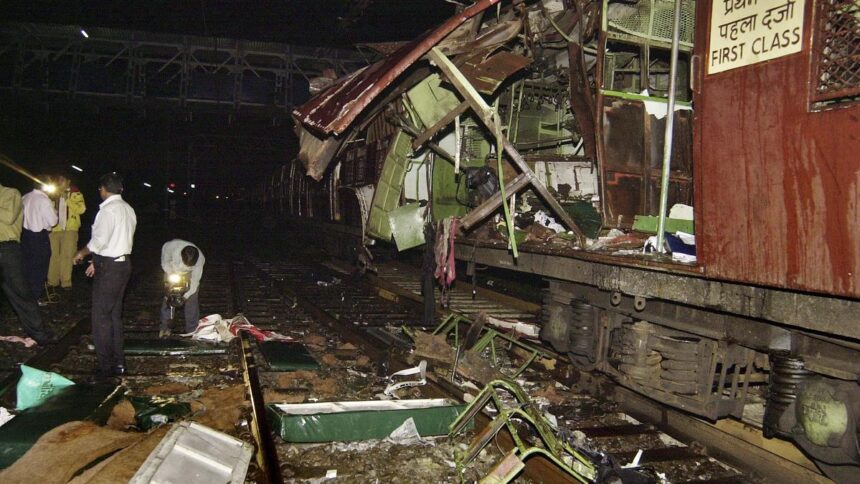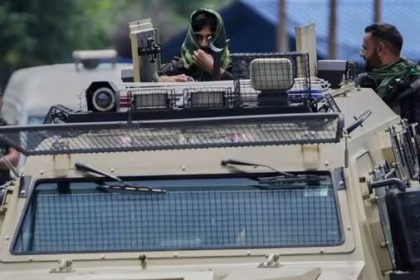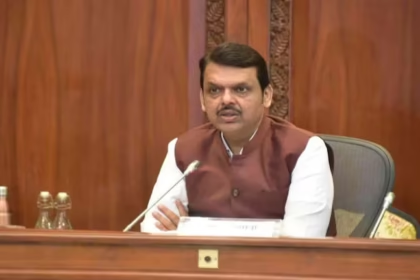7/11 Mumbai Train Blast Verdict Fails to Address Police Torture and 12 Men’s Lost Years
Mumbai: On July 21, two significant judgments were delivered in separate cases of custodial torture. In one, the Supreme Court ordered the immediate arrest of accused policemen, compensation for the Kashmiri police constable who was a victim of torture, and a CBI investigation.
In the other, the Bombay high court acquitted 12 men – five on death row and seven serving life sentences – in the 2006 Mumbai serial train blast case after 19 years of prolonged incarceration. The high court thoroughly examined custodial torture, reviewing medical evidence and details of the brutalities and coercion involved.
Among those acquitted, five persons – Kamal Ansari, Mohammad Faisal Ataur Rahman Shaikh, Ehtesham Qutubuddin Siddiqui, Naveed Hussain Khan and Asif Khan – were awarded the death penalty after the special Maharashtra Control of Organised Crime Act (MCOCA) court in 2015 found them guilty of “planting the bombs”, along with undergoing training for terror activities, and conspiracy, among other accusations.
The seven others who were sentenced to life (unto death) by the MCOCA court are Tanveer Ahmed Mohammed Ibrahim Ansari, Mohammed Majid Mohammed Shafi, Shaikh Mohammed Ali Alam Shaikh, Mohammed Sajid Margub Ansari, Muzammil Ataur Rahman Shaikh, Suhail Mehmood Shaikh and Zameer Ahmed Latiur Rehman Shaikh. Kamal Ansari died in 2021.
However, in its 667-page judgment, while addressing the “how” of the violence, it conspicuously avoided identifying the perpetrators, leaving out the crucial “who” behind this barbarous torture.
Torture, a common ‘interrogation tool’
Torture, a common “interrogation tool” used by the police, is often justified as the only option available when a suspect remains obstinate and refuses to cooperate with the investigation. As the state government and the police have already begun justifying their actions in the case, it is therefore important to first point out how the high court approached the cases of the 12 incarcerated individuals before getting into limitations of this judgement.
Justices Shyam C. Chandak and Anil S. Kilor, who jointly authored the judgment in the July 11, 2006, serial train bomb blast case, set the tone with their opening remarks:
“Punishing the actual perpetrator of a crime is a concrete and essential step toward curbing criminal activities, upholding the rule of law, and ensuring the safety and security of citizens. However, creating a false appearance of having solved a case by presenting that the accused have been brought to justice gives a misleading sense of resolution. This deceptive closure undermines public trust and falsely reassures society, while in reality, the true threat remains at large. Essentially, this is what the case at hand conveys.”
While the high court does not explicitly call the 12 men “innocent,” the opening remarks strongly suggest their innocence. The judgment, while dismantling the prosecution’s case point by point, places extra emphasis on the various torture techniques used to extract confessions from these 12 men.
The prosecution’s case claimed that the accused had entered Pakistan through Iran, received training in arms and bomb assembly, had Pakistani handlers, conducted reconnaissance of Mumbai’s train network, and executed a well-coordinated attack that blasted seven trains along the Western Line of Mumbai’s local trains. The case relied primarily on confessional statements recorded by the police shortly after the arrests.
Throughout the process, the accused, their lawyers, and medical evidence consistently pointed to prolonged torture endured both in police custody and later in jail. These complaints and evidence were long ignored by both the trial court and state machinery.
When the matter finally reached the high court, it had the opportunity to address the issue of torture and hold the erring officers accountable, including not only lower-ranking policemen but also senior officials, some of whom were IPS officers.
Man acquitted in 2015 had named nearly 100 policemen, medical officers
Abdul Wahid Shaikh, one of the first persons to be acquitted by the Maharashtra Control of Organised Crime Act (MCOCA) court in 2015, names nearly 100 policemen and medical officers who wronged him and the other 12 incarcerated individuals. In his book Begunah Qaidi, he details the extent of the brutality and exposes how confessions have traditionally been extracted, particularly in cases involving torture.
Under MCOCA, a draconian law, the police have significant powers, including 30 days of police custody and 180 days to file a chargesheet. Statements given before a Deputy Commissioner of Police (DCP) are admissible.
The law mandates that the DCP recording the statement confirm that it was made voluntarily, without duress or coercion. In the train blast case, every DCP who recorded a statement failed to verify the voluntariness of the confessions.
The judges, accepting the defense’s argument, stated: “This was essential to ascertain the cooling-off period necessary in the case, the extent of efforts required to dispel the fear that would have enveloped the accused, the steps needed to ensure voluntariness, and whether the accused had been tortured. In the absence of ascertaining this information, it would be impossible for the DCP to conclude that the statements were voluntary.”
The court also noted that visible injuries on the accused at the time of recording their confessional statements were ignored by the concerned DCPs, who failed to review the relevant medical reports. The judgment lists names of police officials like DCPs Brijesh Singh, Naval Bajaj and D.M. Phadtare, Superintendents of Police Sanjay Vilasrao Mohite and Dattatray Rajaram Karale, among others, who failed to follow due procedure while recording confessions. Some of these DCPs, some of whom were IPS officers, submitted identical typed confessions to the trial court, which were accepted during the trial.
The judgment also considers the role of the then-superintendent of Arthur Road Jail, Swati Sathe, who allegedly attempted to “allure” the accused to become approvers and, upon their refusal, beat them on June 28, 2008.
Allegations of torture were also leveled against the then-Commissioner of Mumbai Police A.N. Roy and ATS chief K.P. Raghuvanshi. These were not baseless claims made as part of a trial strategy but were supported by medical evidence.
The judgment reproduces several charts provided by the defense in their appeals, including a timeline of the retractions made by the incarcerated men. Eleven of the 12 retracted their confessions the day they were transferred from police to judicial custody, with the 12th retracting within a few days.
The high court observed: “If a confession is retracted at the earliest opportunity, more weight may fairly be attached to it than if the accused waits until the sessions trial. … Courts do not act upon a retracted confession without corroboration from other sources as to the guilt of the accused. It is not a rule of law but a rule of prudence.” The prudence referred to here refers to the numerous allegations of torture made by the defendants.
The court also noted that the trial judge, Y.D. Shinde, was repeatedly informed about the torture but failed to act on these serious allegations. However, the high court judgment remains silent on the trial court’s inaction.
The nature of the torture was evident throughout the trial, including during the recording of the ‘313 statement’ – the process of recording the accused’s statement at the fag end of the trial. Yet, the MCOCA judge overlooked both the complaints and supporting medical evidence. The High Court judgment too does not address this oversight either.
Judicial failure has resulted in a profound miscarriage of justice
Custodial torture, both in police and jail custody, is an ugly reality of India’s criminal justice system. While custodial deaths trigger mandatory judicial inquiries, non-lethal violence often goes ignored.
India has had a poor track record on custodial torture and has compounded the issue by refusing to take responsibility for correcting police behavior or holding officers accountable. India has long evaded its responsibility and failed to ratify the United Nations Convention Against Torture (UNCAT).
The defence lawyers in the case have consistently highlighted numerous lacunae in the investigation, emphasising that the 12 incarcerated men have lost the prime of their lives, suffered significant losses, including the death of family members, and experienced strained relationships while in jail.
However, these arguments did not lead to the high court enforcing accountability. Even when it was well within the court’s powers to pass strictures against the erring policemen, and also adequately compensate the men for the torture, and lost time, these crucial aspects were ignored in the judgement.
In its 2015 judgment, the MCOCA court not only disregarded numerous investigative discrepancies and serious allegations of torture and misconduct but also failed to address explosive claims made by Sadik Israr Shaikh, an individual arrested in a separate case tied to the Indian Mujahideen module.
Shaikh, in 2008, had claimed before the very same MCOCA judge that he and his banned organisation were responsible for orchestrating the terror blast in the city, raising significant doubts about the convictions of these 12 men. Similarly, the ATS’s pressure cooker theory – that the bombs were fitted inside cookers – has now fallen apart, and the actual nature of the blast remains unknown even two decades later.
The MCOCA court failed to act on this crucial information then, so has the high court by not ordering a fresh probe into the attack.
The judicial failure has resulted in a profound miscarriage of justice, not only for the 13 incarcerated men, including Abdul Wahid, and their families, who have endured immense suffering, but also for the 189 families who lost loved ones in the heinous attack and are yet to see true accountability.







